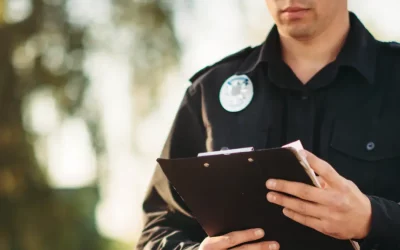How long does it take to settle a first offense in Nevada? Dive into each process step and what to expect along the way.
If you’re facing your first offense in Nevada, you might feel stressed or confused about what will happen next. The legal process can seem complicated, and you will need all the information and professional help you need.
This article will break down what to expect during the process, from the time you’re charged to the resolution of your case. It will explain each part of the process, such as your first court appearance, what happens before the trial, and what to expect if your case goes to trial. Whether you are looking for an immediate solution with a plea deal or getting ready for a more extended trial, knowing these steps can help you handle your situation better.
Quick Summary:
- Facing your first offense can be stressful, but knowing what to expect can help ease some of that anxiety. The legal journey starts with an arrest, followed by a series of steps, including booking, bail hearings, and arraignments. Each stage of the process is essential; therefore, understanding the process and seeking professional legal assistance can help you make informed decisions.
- First offenses in Nevada can range from misdemeanors, like petty theft or DUI, to felonies, which carry more severe penalties. The nature of your charge impacts how the legal process unfolds, with some offenses potentially leading to lighter punishments while others result in harsher consequences. This knowledge also sets the groundwork for your legal strategy moving forward.
- After the arraignment, you may have the opportunity to negotiate a plea deal, which may lead to a lesser charge or a reduced sentence. However, if a plea agreement isn’t reached, your case will proceed to trial, where both sides will present their arguments before a judge and jury. The outcome can greatly affect your future, whether you are found guilty or not guilty. Consequently, understanding your options and working with a skilled attorney can significantly impact the resolution of your case.
Common Types of First Offenses in Nevada
The types of charges vary depending on the situation. Some of these can be considered misdemeanors, which are less serious and come with lighter punishments. On the other hand, some offenses are classified as felonies, which carry more severe consequences. Common types of first offenses include:
- Driving Under the Influence (DUI)
- Possession of a small amount of illegal drugs, such as marijuana or controlled substances.
- Theft of items valued under a certain amount (usually under $1,200) is considered petty theft or larceny.
- A domestic violence charge is often considered a misdemeanor.
- Trespassing
The specifics of your case, like the amount of drugs found or the value of stolen property, can impact the severity of the charge. Understanding your charge is the first step in knowing what you might face in court.
Understanding Legal Process for First-Time Offenders
Dealing with the legal system can be overwhelming, particularly for first-time offenders. A criminal case in Nevada follows a specific process that begins with a pre-file investigation and then arrests, which can lead to various outcomes depending on the circumstances. Understanding this process is important for anyone involved in a case, as it can help clarify what to expect at each stage.
Pre-file Investigation
Before formal charges are filed, law enforcement may conduct a pre-file investigation. This involves gathering evidence and interviewing witnesses to determine if there is sufficient proof to proceed with the case. If you’re a first-time offender, it’s important to realize that this early stage can significantly impact your future. Getting legal advice at this point can help you understand your rights and may even help you avoid charges altogether.
The Arrest
If law enforcement believes they have sufficient evidence, an arrest will occur. During this time, officers must inform you of your rights, including the right to remain silent and the right to an attorney. Being arrested as a first-time offender can be overwhelming, but knowing your rights can help you stay calm.
Booking Process
In the booking process, law enforcement will take your personal information, fingerprints, and mugshots and record the charges against you. Depending on the nature of the charges, you may be held in custody or released shortly after booking.
Bail Hearing
Bail allows you to be released from custody while you wait for your court date. The Nevada judge determines the bail amount based on factors like the severity of the offense and whether you have a criminal record. For first-time offenders, the judge might be more likely to set a lower bail amount or even offer release on personal recognizance. This means you don’t have to pay but must agree to return for all your court appearances. If the bail amount is too high, you can consider working with a bail bondsman to cover the cost.
Initial Court Appearance (Arraignment)
The arraignment is usually one of the first court appearances after an arrest, especially for first-time offenders. During this hearing, the judge will explain the charges against you, and you will have the opportunity to enter a plea. You can plead guilty, not guilty, or no contest. Pleading guilty or no contest means accepting the charges against you, while pleading not guilty means you want to fight the charges and go to trial. The arraignment also lays the groundwork for what happens next in your case, including plea deals or going to trial.
Pre-Trial Procedures
Pretrial conferences and preliminary hearings are essential for discussing the case before it goes to trial. In a preliminary hearing, the judge will determine if there’s enough evidence to continue the case. These meetings are also opportunities for your attorney to negotiate with the prosecution, which may lead to a more favorable outcome.
Plea Negotiations
After the arraignment, there may be a chance for plea negotiations, especially for first-time offenders. This is when your lawyer and the prosecutor talk about possible plea deals. A plea deal means you might agree to plead guilty to a lesser charge in exchange for a lighter sentence or other benefits. Factors like the evidence against you, criminal history, and case details can affect the plea deal. Taking a plea deal can sometimes help you avoid the stress and time of a full trial.
Trial (If Necessary)
If a plea deal isn’t reached, the case moves to trial. Both sides will present their evidence and arguments before a judge and, usually, a jury. The jury listens to the evidence and decides whether you are guilty or not guilty. The judge ensures the trial is fair and follows the law, allowing both sides to present their case properly.
Sentencing
The final stage is sentencing if you are found guilty or plead guilty. Various potential sentencing options include probation, community service, fines, or jail time. The judge will consider several factors when deciding your sentence, such as the severity of the crime, your criminal history, and any circumstances that might lessen your punishment, like your age or mental health. Understanding these factors can help you and your attorney prepare for what to expect.
Probation
Probation is often granted as an alternative to jail for first-time or non-violent offenders. While on probation, you must follow strict conditions, such as regular check-ins with a probation officer, attending counseling, avoiding certain people or places, and staying out of trouble. Violating probation terms can result in additional penalties or even jail time.
Appeals
You can appeal the decision if you are convicted and believe there was a legal error in your trial. An appeal is a request for a higher court to review the case for any mistakes that may have affected the outcome. Depending on the circumstances, appeals can result in a new trial, a reduced sentence, or even a reversal of the conviction.
Sealing Records
For some first-time offenders, sealing their criminal records may be possible after a certain period. Sealing your record means the conviction is no longer visible to the public, which can significantly improve your chances of getting a job or housing. The eligibility for record sealing depends on the type of crime and how much time has passed since your conviction.
Resolving a first offense in Nevada involves many steps, from the initial charges to the final resolution, whether through a plea deal or a trial. Learning about each stage can help you make informed decisions and better prepare for what lies ahead. Having criminal defense attorneys in your corner will give you the professional assistance and representation you need as you go through the complicated legal process and make sure that your rights are protected.
Contact Our Criminal Defense Attorney Today!
Facing criminal charges as a first-time offender can be stressful. The legal process has many steps, and it can be hard to keep up. And you don’t have to go through it alone with a criminal defense attorney in your corner.
At Joey Gilbert Law, we are dedicated to giving you the best advice for a better outcome. Let us help you through the overwhelming legal process and provide the necessary assistance.
Our criminal defense attorneys at Joey Gilbert Law have experience dealing with first-time offenses in Nevada, such as DUI, possession of a small amount of illegal drugs, petty theft, or larceny, among others.
Call us now for a free consultation. Together, we will strive to resolve your case better.



